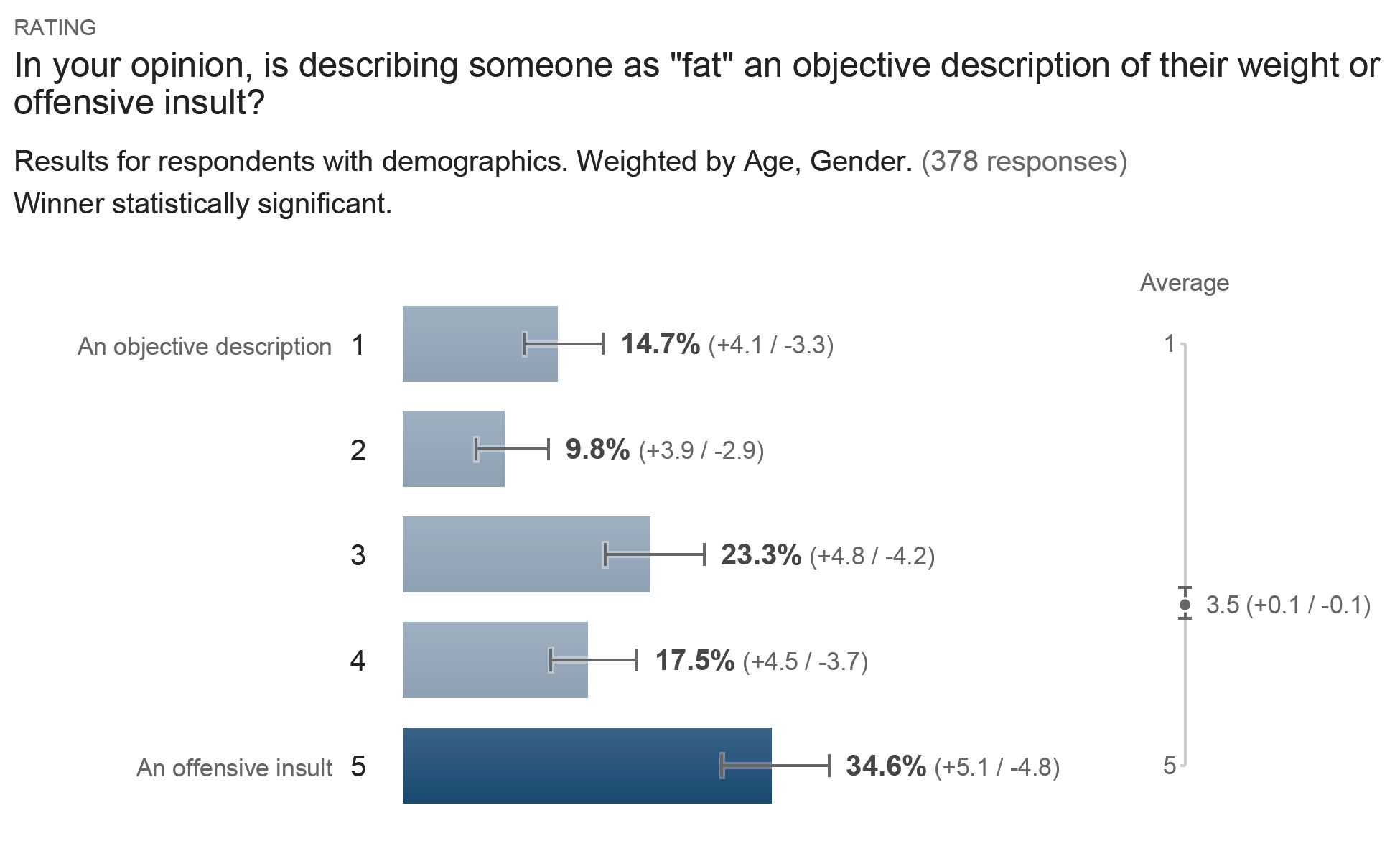
What’s Becoming of the Word “Fat”?
The word fat seems to be in a state of transition.
On one hand, fat activists are reclaiming the word with pride. Media is feeling some license to use the word to grab our attention with headlines like “What makes us Fat?” And then there’s the Weather Channel serving up Fat Guys in the Woods, more in a vein of exploitation than pride.
On the other hand, awareness and rejection of fat shaming seems to be growing ever stronger — a good trend from our perspective.
With so many crosscurrents, it’s worth considering what the broader public thinks. So we asked a representative sample of adults, and here is what we learned.
Make no mistake about it. Even if some people are claiming the word fat for themselves, its offensive when you throw it around at other people. Unsurprisingly, women feel even more strongly, with 60% saying it’s an offensive insult.
 One more twist lies in these numbers. Click the graph on the right if you want a closer view of the details. When you break down the answers by how someone perceives their own weight status, some significant differences jump out. Fewer people who describe themselves as overweight are willing to say that “fat” is clearly just an objective description of someone’s weight. This is true whether you compare them to people who think of themselves as having a healthy weight or people who describe themselves as having obesity.
One more twist lies in these numbers. Click the graph on the right if you want a closer view of the details. When you break down the answers by how someone perceives their own weight status, some significant differences jump out. Fewer people who describe themselves as overweight are willing to say that “fat” is clearly just an objective description of someone’s weight. This is true whether you compare them to people who think of themselves as having a healthy weight or people who describe themselves as having obesity.
That last point is worth noting. Perhaps some of the people who have come to terms with the word obesity might feel less offended by the word fat.
In any event, beware. These words have sharp edges.
Click here to read more about reclaiming the word fat and here for a more ambivalent perspective.
The Fat Woman, ink on paper by Aubrey Beardsley, from WikiArt
Subscribe by email to follow the accumulating evidence and observations that shape our view of health, obesity, and policy.

